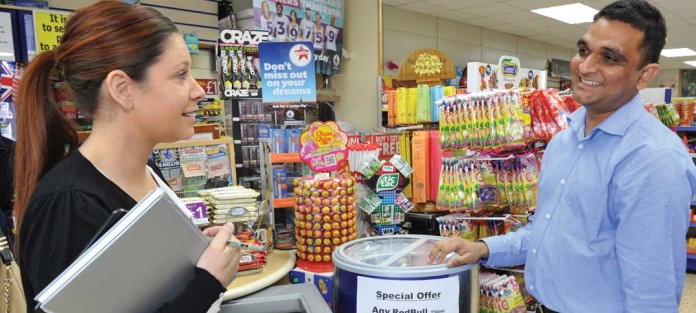Retailers prefer to learn best practice from one another, reports Nick Shanagher.
The opportunity of the independent channel is simply too complex for many consumer packaged-goods manufacturers to seize. While they know that millions of shoppers are walking past shelves in local shops every day, their challenge is to influence what goes on at the point of sale.
For the wholesale channel, this is an opportunity to co-ordinate for these manufacturers the ways in which retailers stock and display their products. Whether through a symbol group or a buying group, wholesalers can negotiate better deals to lock retailers in and better margins from suppliers for sticking to their rules.
However, in most cases, the supply chain remains locked into a push model. Instead of a manufacturer storing thousands of unused promotional items in its distribution hub, wholesalers get to scatter them in depots around the country.
The solution is to have retailers pulling activity through the channel. To do this, the independent retailer has to be encouraged to do two things. The first is to improve operational disciplines; the second is to be clear about what shoppers need to buy.
Operational discipline.
Operational discipline is at the heart of successful retailing. Many retailers get by on their inherent understanding of how to make a profit selling ranges of products that they know about and for which they have a passion. Their business reaches a certain level but cannot rise any further because there are simply too many routine things to do each day. The owner does not delegate tasks and does not free up time to make business decisions.
These retailers typically work long hours in their shops and are very defensive when receiving advice, tending to see it as criticism. While they understand the proposition behind promotions and the need to provide their shoppers with a consistent level of service, new ideas often fail because their daily processes are not designed to cope with change.
They do pay attention to their shoppers and they have good recall of people who buy one item five times a year and make sure this is in stock for them. The shoppers they don’t see are the ones who come in looking for something their shops do not sell and leave empty-handed.
Even when they decide to join a symbol group, they often believe that responsibility for making the move a success lies with the wholesaler. After all, wholesalers are the experts and have a track record of success.
The Independent Achievers Academy, which starts its 10th year this month, is a tool that the channel can use to address these problems. It works by sharing best practice advice across the store with case studies from retailers, both affiliated to symbol groups and completely independent. Retailers like to learn from other retailers.
“Anything that helps drive the business forward has a positive impact,” says Conrad Davis, a Spar retailer who took part in 2014.
“It’s got me to up my game,” says Bintesh Amin, a Londis retailer.
“We used the IAA as a guideline for the management team and staff to drive the business,” says Jim O’Neill, a wholesaler who has a Nisa Local store.
“It has made us look at how we are doing things and given us the facts about what we are doing and insight into how we are as a business,” says Mark Coldbeck, a Premier retailer. “It has given us a fresh impetus.”
The IAA launch is being hosted at Eat 17, an inspiring independent store and restaurant run by Spar retailer James Brundle. There have been many improvements to make the feedback to retailers taking part even more useful.
Wholesalers should persuade their retailers to take part. The IAA is about self-entry and learning from other retailers.








